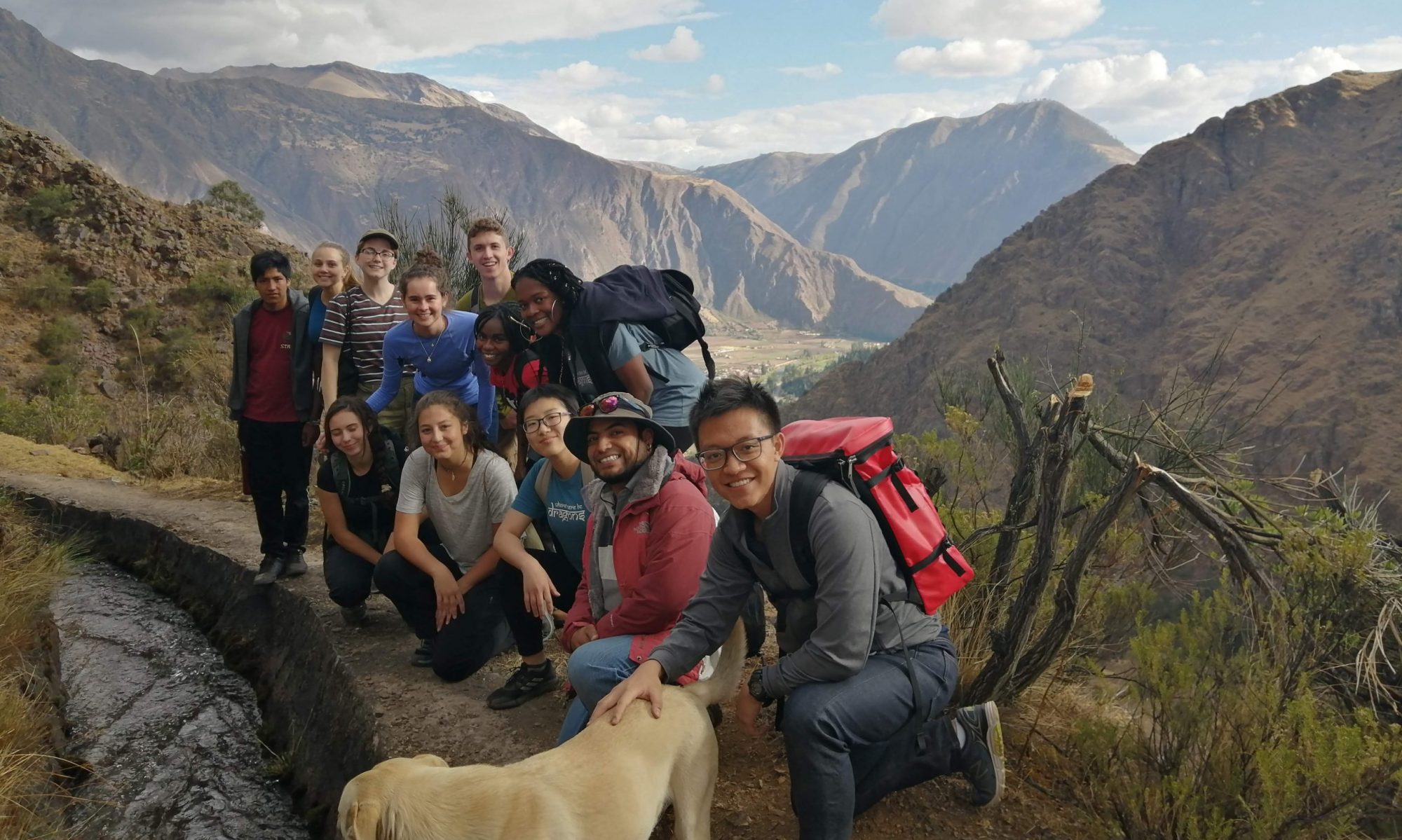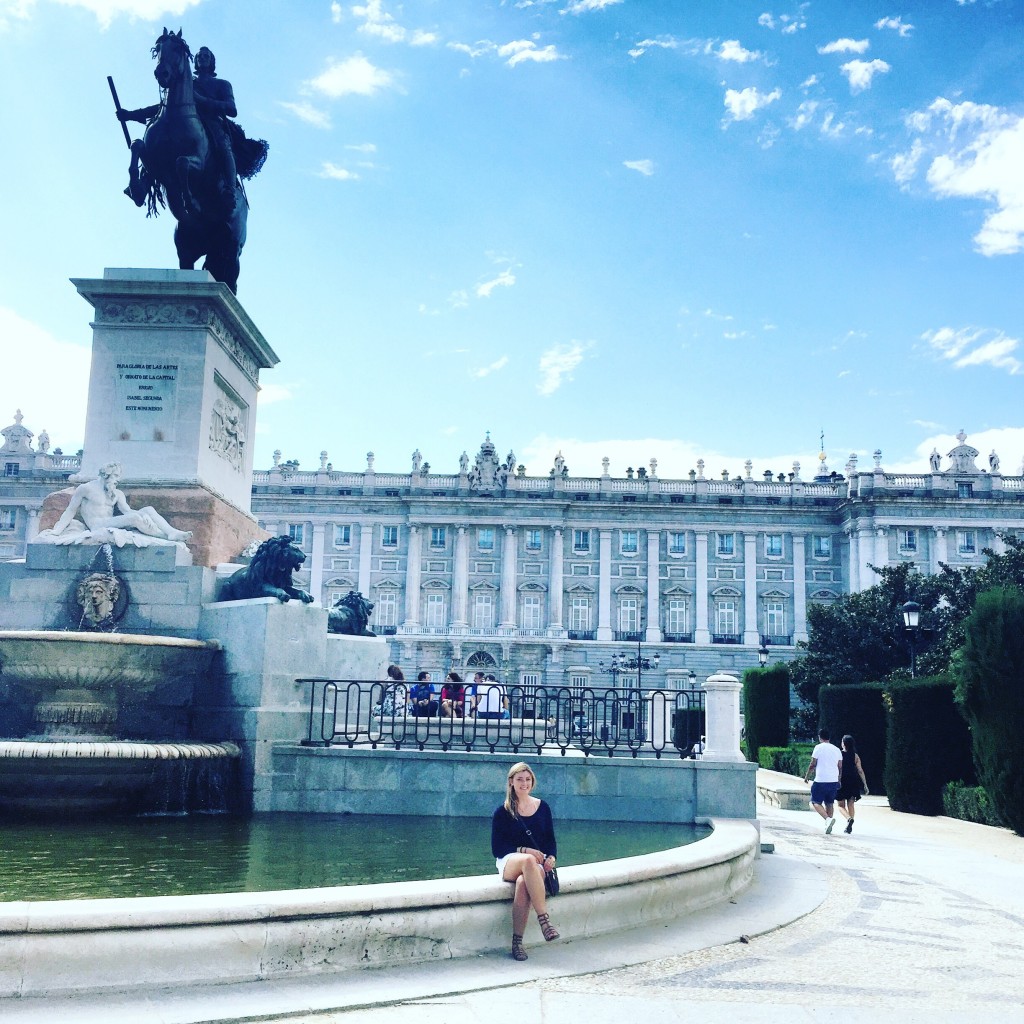
by Abigail, Tufts 1+4 Participant
Anyone that knew me before I left on this grand adventure probably wouldn’t associate the word ‘chill’ with me at all. Not freaking out, not stressing, not overthinking, and just going with the flow is not something I regularly practiced, and I honestly thought it was because I couldn’t. But after a month and three days in Leon, Nicaragua, where I’m thousands of miles away from my home, my lifestyle, and my comfort zone, I’ve learned that the most important thing you can do in any and all situations is have a little ‘chill.’ About 90% of the time, I haven’t a clue what’s going on, things didn’t go as planned, or I’ve never done what I have to do. I’ve quickly learned that they only way to survive this, learn from this, and just have fun is to just stay as cool as possible.
And yeah, that can be really hard. But I can safely say that after only a month, I am a proficient practitioner of ‘chill.’ That’s right people, Abigail Barton now knows how to chill. I don’t mean to brag but I’m getting pretty good at it….And I’m certainly going to be a professional at the end of these nine months. I’m happy that I’m learning this skill before I continue on with college and life. It’s a lot more fun! And if it’s not necessarily fun, it has enabled me to attack life with tenacity, with fearlessness.
A lot of the times I just find myself laughing at how little I know about the world, specifically the culture here in Leon. For some reason it just seems hilarious, like ‘okay, I’m actually here, I’m actually in a crowd of people at a festival and we’re all running and laughing and I have NO CLUE WHY but it’s kind of fun!’ Sometimes, though, it’s just too confusing to find funny. Or sometimes I’m too frustrated. I have to be really conscious of myself, and how I’m reacting. I constantly tell myself that it’s okay and it’s just how it is. Just going with it is the only way I’m going to discover the culture, and realize how special it is that I get a whole year to do this. All I have to do is breathe, smile, and continue forward with as much openness as possible.
It feels like I’ve been here forever, but at the same time like I just arrived. It feels like I’ve done so much already, yet there is so much that remains untouched. One of my favorite things to do so far is just go exploring, with other fellows or just by myself. I love seeing things, tasting them, smelling them. I get just as excited when I discover something drastically different as when I discover something uncannily similar to the culture back home. I’ve lived in the same small town my entire life, so the concept of living in a city is new to me. I’m kind of addicted to it, like the kid who doesn’t eat candy at home and goes the craziest at birthday parties. I love that there is always more to experience, streets I haven’t walked, food I haven’t tasted.
So far, I’ve taken a salsa class, tried Zumba, started a painting class, visited the art museum, walked the top of the cathedral, gone to the movies, sat in the park, eaten ice cream, cake, and crepes, visited with the other fellows, and more. These things have been fun, a little crazy, and adventurous. These are the things I put on Instagram. But I’ve experienced so much more that might not make for the best social media post, but have been just as important.
I’ve learned (still learning) to live with a new family. My host family is only three people, like my family back home. I have an eight year old host brother, and we both have to get used to the concept of siblings! I do laundry by hand. I make my own breakfast, like I do at home, but instead of toast I usually find myself having gallo pinto and an egg. Whenever my host family does anything, I go along with them, even if I don’t know what we’re going to do. I’ve gone to processions, festivals, supermarkets, and children’s birthday parties this way. I really love it! It’s hard to fit into a different family rhythm, but I expected nothing less. It’s things like watching my host brother’s face light up as we put out candles for the Virgin Mercedes, playing truth or dare with the birthday girl at her party, making an altar at my host grandmother’s house, and watching multitudes of parades (September is a big month for holidays here) that make me so grateful for being so immersed.
I’ve also been working at my partner agency Las Tias. The Association was started by a group of women in the market half a block from my house in the 1980s. What was at first a little corner for kids of the market to eat has become two locations that serve approximately seventy children and adolescents. I work at the adolescent location, and at first, that really terrified me. I’m still an adolescent myself, only about a year older than some of the kids that attend Las Tias. How could I be in this position of responsibility and supervision when I’m the same age? I still struggle with this question. However, I have found my age to be advantageous. I can be a friend to everyone, and become a source of support that is less formal. We talk about music a lot, or how to french braid. Mainly, I help with English and math homework. Some kids need more help than others, and some are less afraid to ask me than others. I made friendship bracelets one day, and taught one kid how to play chess. One morning we went to a parade for San Geronimo. Honestly, there is also a lot of down time. When the kids don’t have homework, there isn’t much to help with until lunch, or until the end of the day. Sitting and chatting, or playing on their phones is common. Since I have to think of a community development process for Amigos, I’ve begun to mill over what we can do to fill in this time with something fun and motivational for these kind and bright kids. It’s a daunting task. I still don’t know my role at the project very well, and feel useless at times. The key is being proactive, something I’ve realized and am working on improving. I am at the right host agency, and I’m confident of that. I just need a little time.
I am happy to say that I haven’t lost the excitement or anticipation that I had on the plane coming here. I constantly wonder what my day will bring. Many of my original apprehensions have been alleviated, but many new ones have emerged. Things are changing fast and so am I.


















